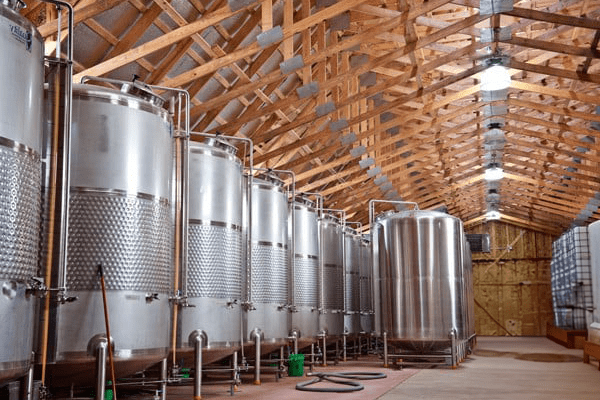|
RCBJ-Audible (Listen For Free)
|
Town of Clarkstown Holds Public Hearing Tuesday On Agritourism Zoning In Which Farms Of Seven Acres or More Would Qualify; Others Would Need To Seek Zoning Variances
By Tina Traster
After a long and arduous battle to run an apple cidery where folks could drink hard cider and mingle, the Van Houtens of Rockland Cider Works in Pearl River are seeking only to produce on site and will forego efforts to get a zoning change that would have allowed on site consumption and the entertainment component of their business.
At least for now.
In its decision to give up the fight over a text amendment, John McGowan, the attorney representing RCW, wrote to the Town of Orangetown: “At this time, RCW is no longer seeking the relief sought in the Petition and, as such, respectfully requests to withdraw same for consideration by the Town and a discontinuance of the continued public hearing.” But Darin Van Houten of Rockland Cider Works says he hasn’t given up on his dreams to run a cidery where people can come to the farm, consume hard cider, and participate in “agritourism,” a trend that is keeping garden centers and farms alive nationwide.
“Right now, we’re trying to simplify things by getting the easy part done first, to get momentum going,” said Van Houten, who needs building department approvals for the cider production. “But one day we do hope to bring agritourism back.”
The letter, sent June 13, wraps up a three-year saga that included the pandemically-timed opening of the cidery as an outdoor retreat, multiple lawsuits between RCW and neighbors and RCW and the Town of Orangetown, and most recently, a proposed text amendment in which the cidery was seeking approval to run its operations.
Instead, RCW has filed a building application with Orangetown to legalize the use of an existing structure for onsite production of cider and retail sales only. Orangetown’s zoning code allows for commercial agricultural operations and buildings for the sale and display of agricultural products at the Van Houten site.
The decision to withdraw the petition may also make the pending lawsuit Susan McWhinney et al v. Van Houten Farm Market Benefit Trust et al, moot.
Attorney David Chen, who is representing the Van Houten Farm Market Benefit Trust and Rockland Cider Works LLC, wrote to Rockland County Supreme Court Justice Christie D’Alessio, proposing a stipulation of settlement. In the letter dated June 13, Chen wrote: “We write in advance of the parties’ June 20, 2024 court appearance with an important development that can hopefully lead to the resolution of this entire matter.”
The Plaintiffs had been seeking to permanently prevent RCW from “using, operating or engaging in any activities related to the Cidery Business” at the farm. The judge had granted a preliminary injunction which has been in place for the past fifteen months. On May 29, the Court granted RCW permission to file a Second Amended Verified Answer with Counterclaims.”
But now Chen wrote “RCW filed a building permit application with the Town of Orangetown that would legalize the use of an existing structure for onsite production of cider, for purposes of retail sale for off-site consumption only.”
The letter told the judge RCW is withdrawing its long-pending petition to Orangetown for a zoning text amendment, which had sought to effectively legalize the cidery business.
Orangetown had been contemplating the adoption of a local law that would have amended the zoning code to permit cideries and wineries in some residential districts by special permit. The effort was prompted by RCW, which had been running a cidery at the Van Houten Farm at 68 Sickletown Road in Orangeburg. The Van Houtens say the farm needs to diversify its income stream to survive. The proposed Agritourism Special Use Amendment petition to the Town’s Zoning Code was submitted on behalf of Van Houten Farms to amend the special uses in the R-80 zone.
Darin and Elisabeth Van Houten have repeatedly said the cidery was a critical element to keep the Van Houten Farm landscaping nursery and garden center alive.
“In all kinds of neighborhoods — urban, suburban, and rural — garden centers like ours are able to exist because of agritourism,” said Van Houten. “It brings people to the farm, it shows what the farm has to offer, people sit down with the family to have a cider.”
Van Houten insists the farm cannot survive indefinitely without some form of agritourism.
“The farm won’t close tomorrow or the next year,” he said. “But I’m not sure I can say the same about five years from now.”
A year ago, Orangetown Supervisor Teresa Kenny made clear she did not believe the Van Houten Farm site should be rezoned for use as a cidery. At the time, the rest of the town board urged a way to find compromise over an issue that had created bitter dissension between the farm’s neighbors and those who advocated supporting a farm that was helping to promote agri-tourism in Rockland County.
The neighbors maintained the cidery was violating the town’s zoning and building codes, creating a nuisance with noise and traffic, and degrading neighboring property values.
In asking the Judge to give the cidery permission to draft a settlement, Chen wrote “We believe this fully addresses the concern (noise, parking, congestion, etc.) that led to this lawsuit, none of which are implicated by the mere production of cider for offsite sale.”
Given the withdrawal of the petition to amend the zoning code, the judge has ordered neighbors and RCW to discuss a settlement and return to court next month.
The fight over allowing RCW to legally operate a cidery stretches back to November 2020 during the COVID pandemic. The cidery was an oasis for many to gather outdoors safely. But it scaled up fast and became a nuisance to neighbors, including an adjacent horse farm, Silver Rock Farms, due to amplified music, noise, parking, and discourteous patrons who forgot their manners.
Last April, the Town of Orangetown hired the Laberge Group of Albany, at the cidery’s expense, to prepare a report on the proposal, and make recommendations. In essence, the report outlines proposed changes that would purportedly balance the interests of the cidery and its neighbors, which have been fighting the cidery in court for nearly two years. RCW and the Van Houten Farm Trust hired a consultant to submit a proposal seeking a text amendment to the town zoning code that would allow agritourism, wineries, cideries and other agricultural uses by special permit on any five-acre-plus property in a residential R-40 or R-80 district with many restrictions on setbacks, lighting, parking and accessory uses.
Proposed Agritourism Law In Clarkstown Would Limit Farms To Seven Acres, 51 Percent Farmed
In related news, The Town of Clarkstown on Tuesday plans to hold a public hearing to amend the town zoning code to define agricultural activities and agritourism.
“This amendment is intended to support and add economic flexibility to agricultural operations, and to promote new commercial operations,” the proposed law reads.
As of late May, the proposed law would have restricted agritourism to sites that have at least 10 acres — effectively making The Red Barn Cidery at Davies Farm — the only eligible candidate to receive the needed approvals. The Red Barn Cidery is Rockland’s only cidery.
The law also proposes a recommendation made by the Town Planning Board that a farm only qualifies for the designation if it is using 51 percent of its acreage for agriculture.
More recently, the proposed law has been amended to allow “agritourism on sites of seven acres or more,” after some outcry over the original proposal. However, the proposed law still restricts smaller farming operations from promoting and enhancing their businesses with agritourism, which county tourism officials consistently advocate for.
Clarkstown has taken notice of its southern neighbor — the Town of Orangetown — where the battle over running a cidery has been waging for nearly three years. Rather than be caught without a clear policy or an ambiguous code, the town is seeking to pass an amendment to its zoning code that would permit agritourism uses in all residential zones, provided the site is at least seven acres, has at least 100 feet of frontage on a state or county road, and can provide a 200-foot buffer to a neighboring residential property. Noise and lighting restrictions also apply. New parking requirements will also be incorporated into the local law.
An agricultural operation with fewer than seven acres that wants to participate in agritourism will need to apply for a variance from the Town’s Zoning Board of Appeals, if the local law is adopted. Scoring a variance is a high bar.













